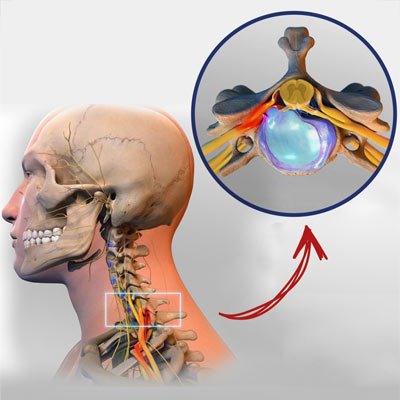Your spine includes pillows of softer discs between bones and cartilage. These discs allow you to twist and bend without pain. When they’re damaged, you lose mobility and experience painful symptoms. It’s possible you have degenerative arthritis in your neck and don’t yet know it. At pain management in New York, you get an accurate diagnosis and full treatment options to get out of pain.
Cervical spondylosis is a degenerative disease affecting your neck. Degenerative disc disease in your neck develops from wear and tear over the years. Older men and women, therefore, are more apt to get the condition. And it typically originates in the cervical portion — or at the top — of your spine.
Degenerative arthritis in your neck is a condition that worsens as you age. According to the Mayo Clinic, more than 85 percent of Americans over the age of 60 suffer with degenerative disc disease in the neck. In most instances, there are no symptoms, but if it’s discovered in an x-ray or exam, non-surgical treatments tend to be successful.
Causes of Cervical Spondylosis
As you get older, wear and tear in the bones and cartilage of your neck weaken the vertebral discs between them. Since your discs cushion the bones and allow a full range of motion, pain accompanies a loss of movement when degenerative disc disease in the neck develops.

When you visit a clinic, your doctor looks for other causes of degenerative arthritis in the neck, such as:
- Bone spurs. As your discs degrade, your spine compensates by growing extra bone in that place. As this extra bone grows, it creates bone spurs that pinch your spinal cord and nerve roots. You may feel the pain in your back, neck or shoulders.
- Dehydrated discs. Your vertebral discs fill the space between your vertebrae, providing a soft buffer to keep the bones apart. This cushion-like barrier starts to dry out and shrink once you reach the age of 40. When this happens, your bones may rub together, causing pain.
- Spinal stenosis. Spinal stenosis involves the narrowing of the space that separates your spinal cord from the nerve roots that send signals to the rest of your body. This impingement causes pain and other symptoms.
- Herniated discs. With age, the exterior shell of your discs can degrade, causing cracks. When the softer, jelly-like interior of your discs spills out, it leads to a herniated disc, which is usually painful.
- Stiff ligaments. Another effect of aging is stiffening neck ligaments. Ligements connect the bones in your neck. When they stiffen, your neck becomes less flexible.
Painful Symptoms
Like many people, you may not experience any symptoms from degenerative arthritis in the neck. If you do experience any symptoms, they’re likely to involve neck pain and stiffness. If your condition involves a pinched nerve or if your spinal cord is impinged, you may notice more serious symptoms that include:
- Difficulty walking
- Loss of coordination
- Inability to control your bladder or bowels
- Tingling or numbness in your extremities
- Muscle weakness
Degenerative Disc Disease in Neck Treatment
Visit the pain management doctors in NYC for an evaluation of the causes of your symptoms. You may need to undergo some tests, such as an x-ray, magnetic resonance imaging (MRI), computed tomography scan (CT scan), myelogram, electromyography (EMG) or a blood test that detects rheumatoid arthritis.
Once your pain specialist makes an accurate diagnosis, your treatment options become clearer. The treatment you need depends on the cause and the severity of your symptoms. Some non-surgical degenerative disc in the neck treatment methods include:
- Non-steroidal anti-inflammatory drugs (NSAIDs), opioid pain relievers or antidepressants can prevent pain for short periods to allow you to follow other treatments.
- Physical therapy. You need a series of sessions to learn exercises focused on improving the strength in your neck. Traction and proper stretching often yields positive results.
- Pain Injections. A cervical epidural steroid injection in the specific location of your neck reduces inflammation and provides pain relief. A facet joint injection blocks the pain in your facet joints.
- Nerve Blocks. A nerve block injection at the site of the pain source temporarily deadens the nerves, preventing them from sending pain signals to your brain.
If you’re suffering from cervical stenosis, spinal stenosis surgery, which is minimally invasive, may be an option to consider. At Pain Management Clinic NYC, you get the right treatment for to stop the pain and other symptoms you’re experiencing. Contact us today!

